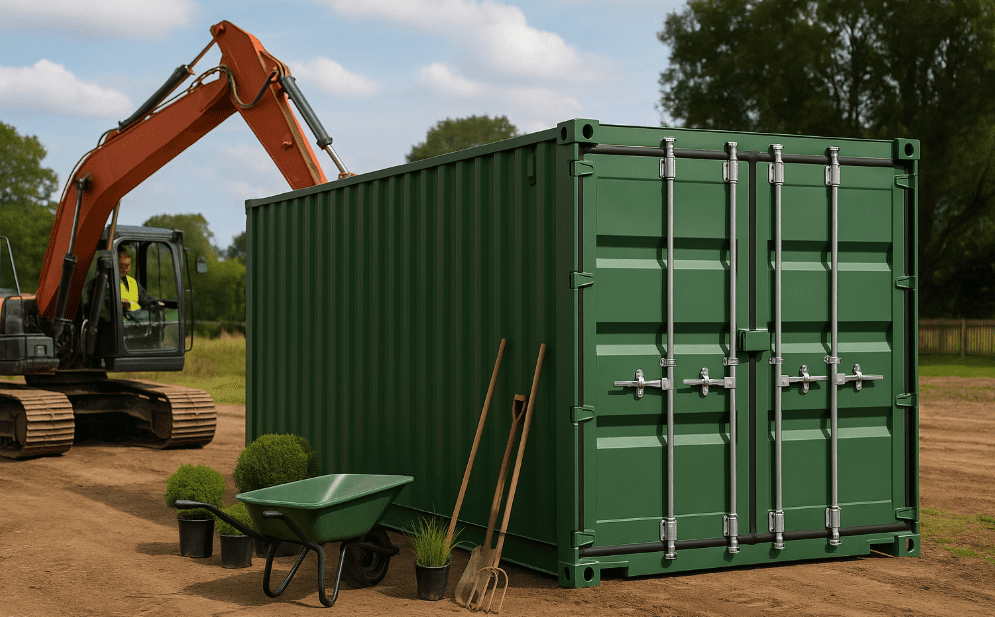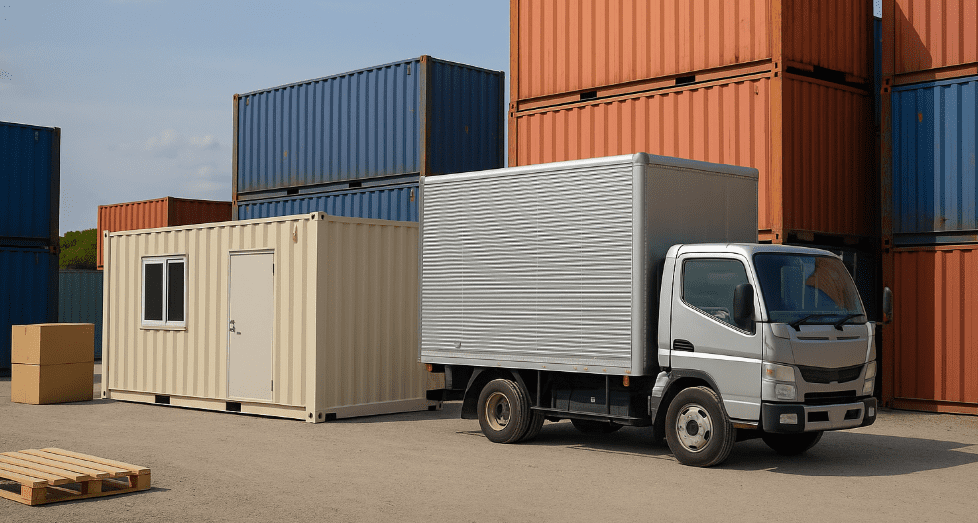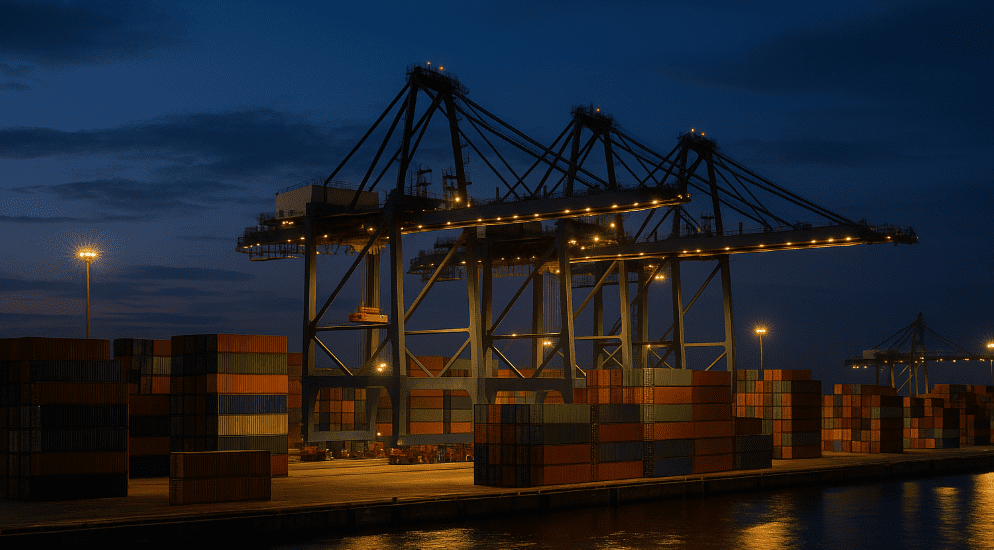In today’s rapidly changing business landscape, efficiency and flexibility are critical for small enterprises. Many small companies struggle with limited budgets, unpredictable growth, and the need to quickly adapt to changing market conditions. Traditional solutions like expanding warehouses or leasing permanent office spaces often prove too expensive or time-consuming. Many entrepreneurs are now turning to new and used shipping containers as practical, cost-effective solutions to streamline their logistics, expand their storage capacity, and improve overall operations. These versatile steel units have moved far beyond their origins in international trade, becoming valuable assets for businesses of every size and industry.
The Evolution of Shipping Containers in Business
Originally conceived to handle products securely across seas, shipping containers were standardized during the mid-20th century to facilitate trade across the world. Their consistency transformed shipping efficiency by dramatically reducing transportation costs and transit days. Today, tiny businesses have found that their same attributes which had made containers a fortune for freight have now made containers applicable for day-to-day business work.
From retail popup stores to modular warehouses, containers have moved far beyond their original intention, providing business starters with a low-cost and customizable base for infrastructure and logistics.
Cost-Effective Storage and Inventory Solutions
For small businesses, inventory management is usually a make-or-break issue. Renting or constructing additional warehouse space is also expense-prohibitive and time-intensive for new start-ups and expanding businesses. Shipping containers are a cost-effective solution.
- Less initial expenditure: It is less expensive to buy a container compared to renting a constant storehouse.
- Durability: Constructed of corrosion-proof steel, containers are weatherproof and sturdy, safeguarding valuable contents.
- Scalability: Companies are able to scale their inventory by increasing additional containers, without having to move ships to larger premises.
It is especially beneficial for businesses based on seasons, for example, retail businesses, agriculture businesses, where storing requirements keep changing during the year.
Portability and Flexible Deployment

One of the strongest benefits of shipping containers is their portability. Whereas older storage or office facilities are not, containers are easy to move quickly and thoroughly. For tiny businesses that work across several sites, like building firms, event management firms, or itinerant service suppliers, portability lessens downtime as well as enhances responsiveness.
Suppose a landscaping business must transport equipment between work sites. A container becomes a transportable, secure base of operations, and tools and materials move along with the workforce. This transportability guarantees supplies are never far away from work are emphasis points.
Customized Business Infrastructure
Today’s businesses demand more and more bespoke solutions, and shipping containers are a blank page for a designer’s genius. With a minimum adjustment, containers can be transformed into:
1) Mobile offices: With insulation, air conditioning, and internet, containers are delivering on-demand professional workspaces.
2) Popup shops and cafes: Retailers or restaurateurs have available containers as cheap stores, having less overhead expense compared to space for brick and mortar stores.
3) Workshops and studios: Creative professionals, artists, carpenters, or mechanics are able to turn containers into specialized workspaces.
These tailor-made choices enable a small business to establish an infrastructure that is tailor-made, yet not with exuberant expenditure.
Enhancing Supply Chain Resilience
Small businesses usually face supply chain interruptions, whether it is a result of trade hitches across the world, slow transport movements, or even a natural catastrophe. Shipping containers prevent their occurrence by ensuring on-location stockroom and delivery capability.
Such as a tiny e-commerce store, it is possible to employ containers as end-country fulfillment centers near key markets, shortening delivery times as well as shipping expenses. Likewise, local food distributors are able to employ containers as cold stores for storing perishable items, guaranteeing a steady produce supply despite external interruptions.
Sustainability and Eco-Friendly Operations
Sustainability becomes a key component of business identity, particularly for small businesses trying to attract environmentally-minded customers, by referring to shipping containers, which are aligned with sustainable processes by increasing the lifespan of materials otherwise remaining idle.
Furthermore, companies incorporate green technologies into containers, including solar panels, rainwater harvesting systems, and energy-efficient insulation. This saves money on operating expenses while supporting a firm commitment to environmental stewardship, a positive aspect of the reputation of a brand.
Security Benefits for Small Businesses
Security is paramount for each business, particularly those storing valuable products or equipment. Containers also have inherent security by their sturdy steel build and lockable doors. For businesses in high-threat locations or external sites, containers are a more protected option compared to shanty-style storehouses.
With some further alterations like lock fortifications, alarms, or even integration of CCTVs, containers are also convertible to sound storage vaults, giving protection and peace of mind to entrepreneurs.
Supporting Growth in Emerging Markets
Everywhere else, small businesses struggle with infrastructural availability challenges. Shipping containers provide a quick fix solution where entrepreneurs set up functional bases and run their businesses even where it is impossible or prohibitively costly to build permanent facilities.
For example, tiny producers are able to set up container workshops in industrial parks with short setup times. NGOs and social businesses are also able to employ containers as itinerant health clinics, Portable classrooms, or relief centers for disadvantaged communities. Such flexibility shows how containers foster inclusive economic growth.
Case Studies: Containers in Action
1) Construction Sector: Small building companies employ containers for storing their tools and portability of offices, eliminating robberies and boosting efficiency.
2) Retail Industry: Standalone fashion brands use container-popping stores during events and bazaars, accessing new clients at affordable rental prices.
3) Food Services: Coffee trucks and food carts branch into container cafes, taking advantage of cheap start-up expenses and distinct visuals.
4) Agriculture: Refrigerated containers are employed by farmers for produce storage, increasing shelf life, and less food wastage.
These real-life scenarios showcase how containers are multi-industry friendly for supporting small businesses.
The Future of Containers in Small Business Logistics

As global trade grows, small businesses will continue to struggle to match large businesses in logistics, affordability, and flexibility. Shipping containers are a solution of a strategy correlating with requirements. On a future note, smart containers, which are containers embedded with IoT sensors, will also strengthen their applicability for small businesses, supporting real-time inventory tracking, temperature management, and security.
Increasing acceptability of modular, containerized solutions offers hope for a future wherein tiny businesses are more agile, more resilient, and nudge closer to their larger counterparts.
Shipping containers are now longer mere trade tools, but are also critical devices to the success of small businesses globally. Their affordability, portability, and versatility equip entrepreneurs to minimize logistics, protect assets, and grow new marketplaces, all without daunting expenses.
As businesses explore container-based solutions, they also need to understand practical considerations, including mobility and transportation. For a deeper look into this aspect, you can read about towing a shipping container: what pickup owners need to know https://pickuptrucktalk.com/2025/09/towing-a-shipping-container-what-pickup-owners-need-to-know/. By embracing container innovation, small businesses position themselves for growth, resilience, and long-term success. Ultimately, containers represent not just a logistical tool but a strategic advantage. Those who adopt them early are likely to gain a competitive edge in efficiency, sustainability, and customer satisfaction.



































